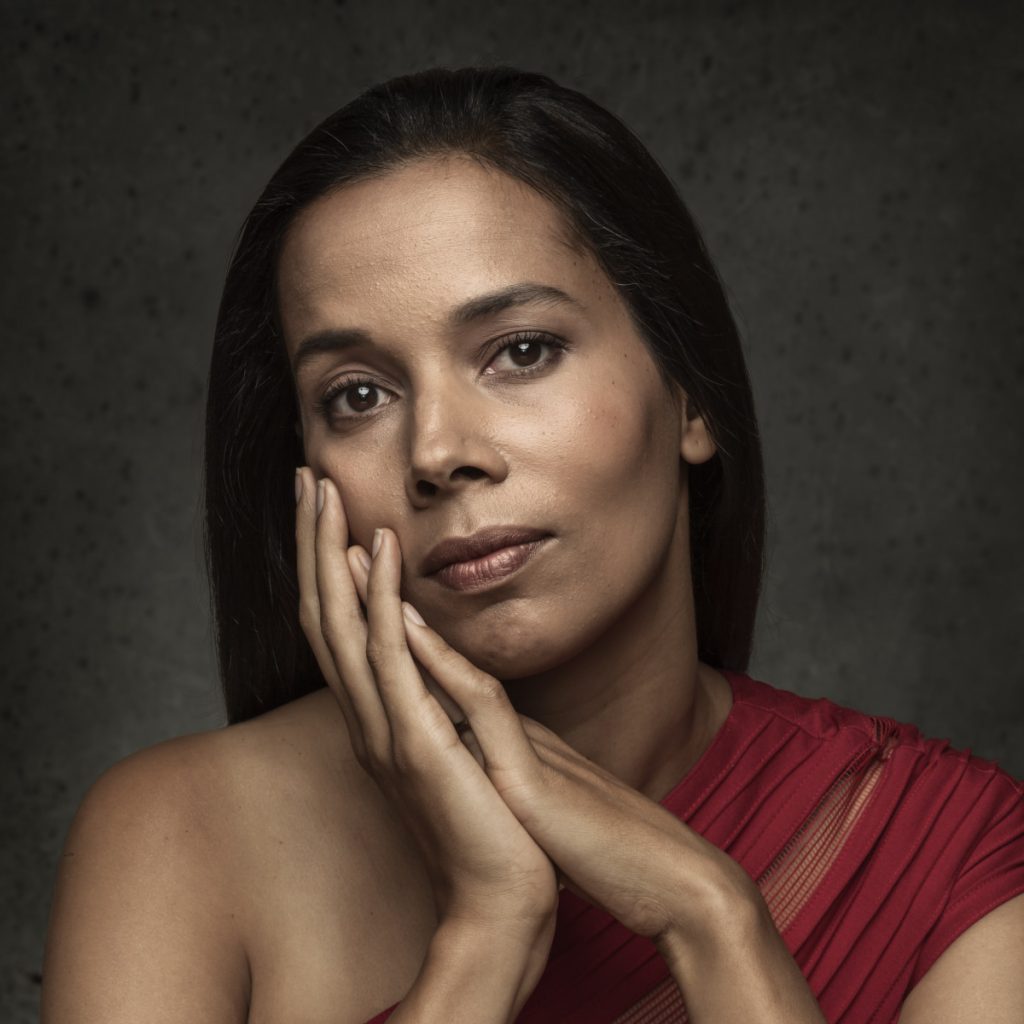Under the undulating Spanish moss and the twinkling string lights of the College of Charleston’s Cistern Yard, Rhiannon Giddens said she wants to rehabilitate the banjo.
Performing there for Charleston’s Spoleto Festival USA in late May with her musical and life partner Francesco Turrisi, the Grammy Award-winning folk musician and MacArthur “Genius” grant recipient strummed the night away.
Now, several months later, Giddens will kick off Week Nine of the Chautauqua Lecture Series, themed “A Vibrant Tapestry: Exploring Creativity, Culture and Faith with Smithsonian Folklife Festival.”
Giddens, the artistic director of Silkroad, will give a lecture on the banjo and its cultural meanings at 10:45 a.m. Monday, Aug. 22 in the Amphitheater.

Deborah Sunya Moore, senior vice president and chief program officer, admires Giddens’ musical excellence and her devotion to storytelling. She’s excited that Giddens will frame the week as a speaker, and then perform her own music in the Amp Tuesday, Aug. 23 at 8:15 p.m. with the Chautauqua Symphony Orchestra.
“(Giddens) will be talking about how the creation of musical myths damages our perceptions of our true past,” Moore said.
Giddens, whose father is white and whose mother has Black and Native American heritage, is a historian as well as a musician. She omnivorously revisits and excavates the constellation of musical styles that bear the moniker “American music.” Drawing on folk, roots, blues and country traditions from both Black and white cultures, Giddens wants to diversify the American story.
In a late April interview ahead of the Spoleto and world premiere of Omar, the opera following the life of an enslaved African Muslim scholar that Giddens co-composed with Michael Abels, Giddens spoke of her passion for recovering untold stories.
“I’ve just been going digging and finding the ones that speak to me, personally, as an artist, and then trying to highlight them, and trying to give them the spotlight,” she said.
The banjo is a historically denigrated instrument given its associations with Appalachia and minstrelsy. Giddens formed the group Our Native Daughters with three other Black female banjo players: Amythyst Kiah, Leyla McCalla and Allison Russell. The project is one facet of Giddens’ ongoing mission to deconstruct the musical myths that Moore mentioned.
In a May 2019 New Yorker profile of Giddens titled “Rhiannon Giddens and What Folk Music Means,” John Jeremiah Sullivan wrote about Giddens’ musical passions. At the time, she had just completed the record Freedom Highway, and Sullivan noted that that album was built on the sound of the minstrel banjo.
“The banjo: an instrument whose origins are so contested — is it African? European? or a ‘cross-bred instrument,’ as one scholar has called it? — that it expresses the messiness of American history before a person has played a note,” he wrote.




